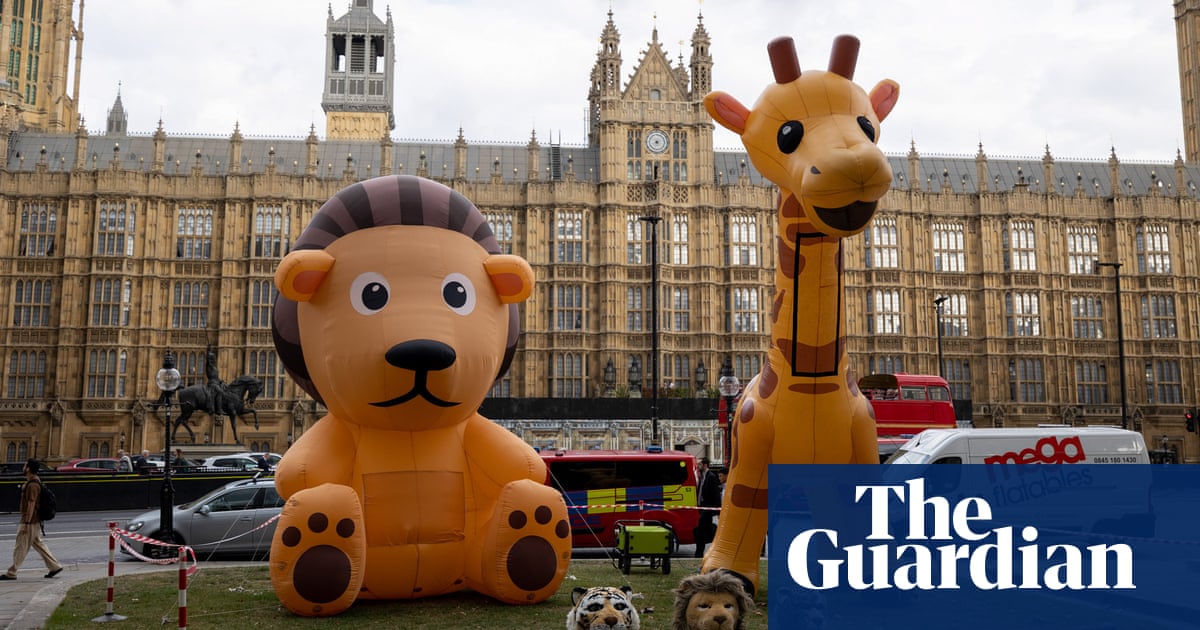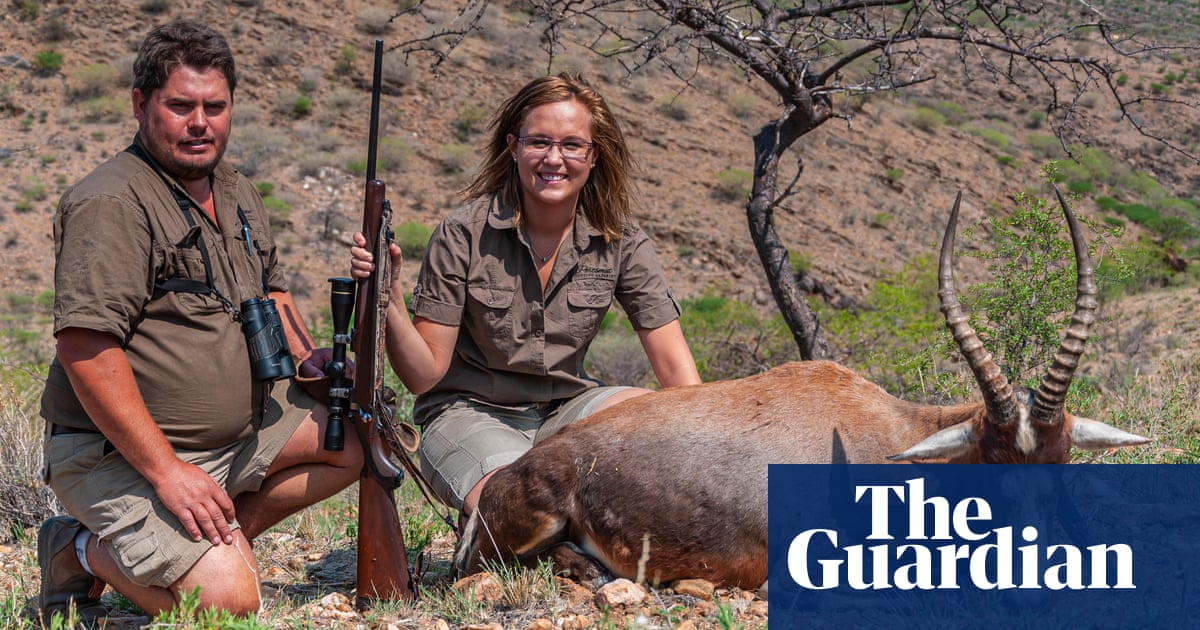
Britain’s international environment minister, Zac Goldsmith, and celebrity anti-trophy campaigners like Ricky Gervais have been accused of neocolonialism by African community leaders, who warn they are ignoring the voices of people who live alongside elephants, lions and other wildlife.
The UK government is expected to bring forward a ban on the import of hunting trophies during this parliament, arguing that the new law will strengthen the conservation of endangered species.
With widespread support from the British public, and an anti-trophy hunting campaign backed by celebrities including Gervais, Brian May, Ed Sheeran and Joanna Lumley, a ban would be popular, and similar legislation is expected in other European countries.
In 2015, the killing of Cecil the lion by a trophy hunter in Zimbabwe provoked global outrage and revulsion at the industry, with hunters paying tens of thousands of pounds to shoot and pose with the bodies of wildlife such as giraffes, elephants and leopards.
But a growing number of scientists, environmentalists and African community leaders have warned that the new law could accelerate the loss of wildlife, pointing to the contributions of regulated trophy hunting to recovering black and white rhino populations in Namibia and South Africa, and the snow leopard in Tajikistan.
During a visit to London last week, Maxi Pia Louis, a Namibian representative for communities in nine southern African countries, met with Goldsmith and other UK politicians to voice her opposition to the ban in its current form, insisting that it would remove financial incentives to protect wildlife without providing an alternative.
“Africans are not being consulted, especially in southern African where we have the majority of wildlife. If there is no incentive to conserve wildlife, we will see a lot of land lost to agriculture. You can imagine what will happen to lions and elephants that need big ranges,” said Pia Louis, who is also meeting with the European parliament and other governments in her visit with colleagues.
“I am not a hunter. I do not like guns. I have seen people killed with guns under apartheid in Namibia, but that does not give me a reason to take away people’s livelihoods,” she said.
Since independence from South Africa in 1990, Namibia’s community-based conservation approach, which permits regulated trophy hunting, has had remarkable success in recovering populations of desert elephants, lions, leopards, cheetahs and giraffes, which plummeted because of poaching in the 1970s and 80s.
Pia Louis said she was taken aback by Goldsmith’s suggestion during their conversation that Namibia could learn from the example of Costa Rica, which has won international acclaim for its success at halting and reversing tropical deforestation but has a very different climate to the hot, arid conditions of the southwest African country.
Africans had no say over the UK’s deer hunting industry, she said, and local communities should be free to decide how to live alongside potentially dangerous wildlife.
“[The ban] is a form of neocolonialism. We are open for discussions as long as there is a mutual respect,” she said. “Who is Ricky Gervais? We don’t even know him. Celebrities have the money, influence and access to social media, not our communities. He should be standing up for the vulnerable.”
Louis has invited Gervais, Goldsmith and other celebrity campaigners to Namibia to see the conservancies in action.
Gervais has been a vocal supporter of a total ban on trophy hunting imports, encouraging his 14 million Twitter followers to write to the UK government to support a change in the law. He has also said trophy hunting is not conservation, dismissing it as “a lie to enable rich psychopaths to shoot things and for corrupt officials to make some money”.
In January, some experts warned the UK ban risked undermining the conservation of rhinos, elephants and other endangered species, proposing a smart import ban instead. Guardian writer George Monbiot is among those who have shifted their opinion on trophy hunting, warning that a ban without financial alternatives would accelerate the mass killing of wildlife.
A UK government spokesperson said it remained committed to imposing “one of the toughest bans in the world” on trophies from thousands of species, adding that it will help protect endangered animals and strengthen and support their long-term conservation. Ricky Gervais declined to comment.
Earlier this year, conservation experts met with the Defra chief scientists to explain the science behind trophy hunting-based conservation models. Dilys Roe, head of the IUCN’s Sustainable Use and Livelihoods Specialist Group, said that while there were damaging examples of trophy hunting, the practice was not driving the extinction of species.
“From a scientific perspective, the major threats driving species extinctions are habitat loss as an absolute key threat, poaching and human-wildlife conflict. Trophy hunting can actually address some of those. The evidence around trophy hunting is much more positive than negative,” she said.
“We really think that decisions are being made based on politics and the emotions rather than science.”












